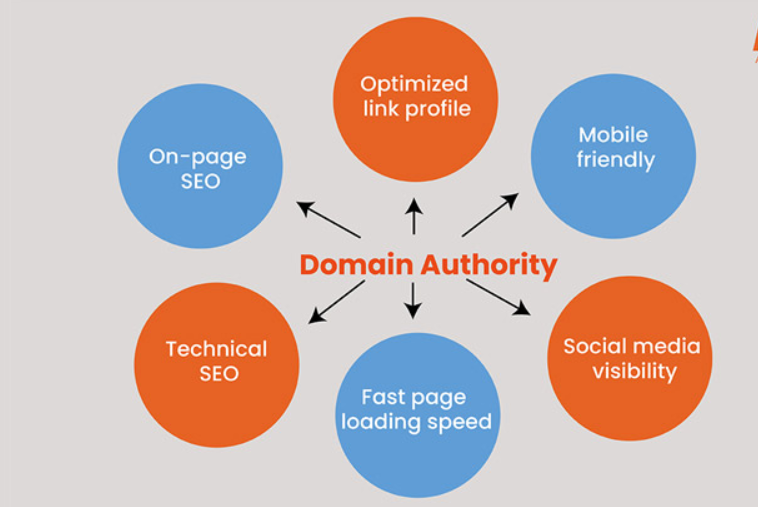Table of Contents
- Introduction
- Understanding Domain Authority
- Building High-Quality Backlinks
- On-Page SEO Best Practices
- Creating Engaging Content
- Leveraging Social Media
- Monitoring and Analyzing Performance
- Staying Informed and Adapting to Changes
- Common Misconceptions About Domain Authority
Introduction
In the ever-evolving landscape of SEO, boosting your domain authority (DA) is akin to enhancing your digital reputation, which is crucial for a robust online presence. Domain Authority acts as a predictive ranking score that influences the visibility of your website on search engine results pages. Although DA doesn’t directly impact your rankings, it is a comparative measure of your site’s authority against competitors. By understanding and implementing the most effective ways to increase domain authority, you can significantly enhance your SEO performance and, subsequently, your online visibility. Implementing strategies such as building high-quality backlinks and optimizing on-page SEO can make increasing your DA a reachable goal.
Understanding Domain Authority
Domain Authority is a metric that estimates a website’s potential performance in search engine rankings. The measurement is conducted on a scale of 1 to 100, where elevated scores suggest a greater probability of attaining improved rankings. Several factors determine DA, including the number of total links and linking root domains, supported by Moz’s algorithms that predict a site’s ranking capacity. As this Forbes article outlines, understanding these factors is crucial for businesses aiming to improve their online presence. By comprehensively analyzing these elements, companies can strategize effectively to increase their domain authority, which, while not a direct Google ranking factor, indicates a site’s online strength relative to others.
Building High-Quality Backlinks
Backlinks are vital in the digital ecosystem, functioning like votes of confidence from other websites. They indicate to search engines the trustworthiness and pertinence of your content. To build a robust backlink profile, engage in strategic initiatives like guest posting on reputable sites and collaborating with influencers. These trusted voices can lend credibility to your content, improving DA. However, avoiding harmful practices like purchasing backlinks is essential, which can incur penalties and damage your site’s reputation and authority.
On-Page SEO Best Practices
Optimizing your site internally is a fundamental step in boosting your DA. It begins with diligent keyword research. Ensure each page on your site is richly infused with relevant keywords that are seamlessly integrated into the content. Optimization extends to refining meta tags and headers. Beyond textual enhancements, improving site speed and user experience is pivotal in maintaining visitors’ engagement. A site that loads swiftly and navigates intuitively keeps users engaged longer, decreasing bounce rates and positively influencing your domain authority.
Creating Engaging Content
Producing valuable, high-quality content is crucial for attracting genuine backlinks, which enhance your DA. Diversify your content offerings by incorporating different formats, such as videos, infographics, and blogs. This caters to varying audience preferences and increases the chances of your content being linked by others. Engaging content invites visitors to interact with your site more extensively, increases time spent on your pages, and encourages recurring visits—key components in enhancing site authority.
Leveraging Social Media
Although social media does not directly influence Domain Authority (DA), it significantly amplifies your content’s reach, which may increase backlinks. Elevated engagement and sharing can promote organic growth by broadening the exposure of your content to a larger audience. By aligning social media initiatives with your comprehensive SEO strategy, you can enhance visibility and create a network that indirectly aids in improving your DA.
Monitoring and Analyzing Performance
Success in boosting domain authority lies in consistent monitoring and analysis. Utilizing tools like Google Analytics and Moz offers insights into what drives performance and areas that require improvement. Key performance metrics can guide your strategies, helping you adjust approaches to maximize results. Establishing achievable objectives and key performance indicators (KPIs) is crucial for ongoing advancement, guaranteeing that your endeavors produce outcomes while offering a framework for enhancement.
Staying Informed and Adapting to Changes
The world of SEO is dynamic and constantly subject to change, so staying updated with Google’s algorithm changes is essential. Engaging in professional development, such as attending courses and webinars, ensures businesses remain at the forefront of the latest SEO best practices. Networking with experts can provide fresh insights and innovative strategies for maintaining a competitive edge. This ability to adapt can benefit your domain authority in a landscape where change is the only constant.
Common Misconceptions About Domain Authority
There are prevalent misconceptions about domain authority and its role in SEO performance. Many assume DA directly affects search rankings, but it is one of many tools in the SEO toolbox. It is essential to understand that while DA is a competitive metric, Google does not use it to determine rankings directly. Understanding the distinction between domain and page authority can help utilize these metrics effectively.



